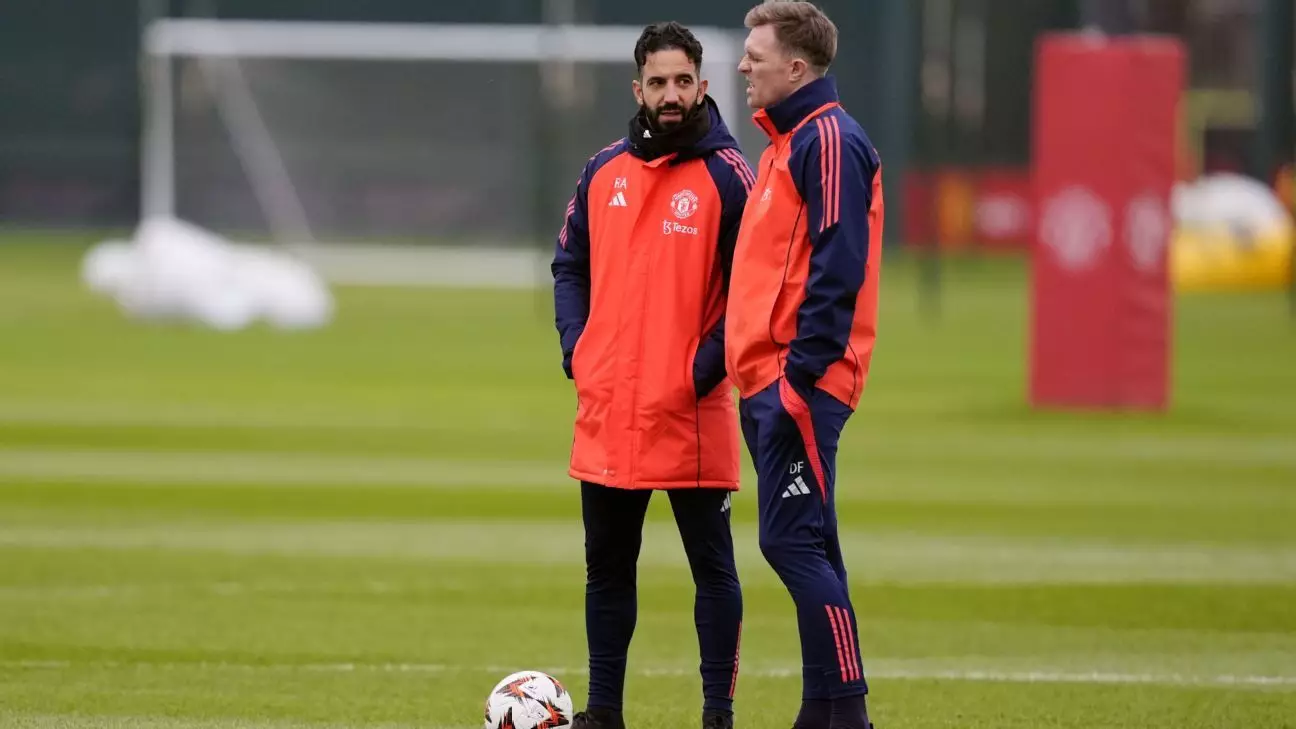In the world of football, the tides can change rapidly, bringing both challenges and opportunities to those at the helm of major clubs. Manchester United, a club steeped in history and ambition, is experiencing such a phase. Recently, the surprising resignation of Dan Ashworth, the club’s sporting director, has cast a shadow of uncertainty over the organization. Ruben Amorim, who stepped into the managerial role just a month ago, faces the difficult task of steering the club through this turbulence while ensuring that the long-term vision laid out by Sir Jim Ratcliffe remains intact.
Dan Ashworth’s abrupt exit after only five months with United raises critical questions about the club’s internal dynamics. Appointed amidst high expectations, Ashworth was perceived as a key architect in reshaping the club’s strategies. His departure, underscored by a financial investment exceeding £3 million, signals instability. However, Amorim maintains that such disruptions are not uncommon in football. His assertion, “this happens with players and coaches,” reflects an understanding of the transient nature of roles within elite sports organizations.
This resignation not only stirs speculation about the underlying reasons but also places additional pressure on Jason Wilcox, who will now lead the recruitment operations. Wilcox’s promotion emphasizes the need for stable leadership as the club prepares for the January transfer window. As the market looms ahead, the recruitment team’s effectiveness in capitalizing on this change will be paramount for United’s ambitions.
Newcomer Ruben Amorim brings fresh energy and perspective to Old Trafford. Having previously thrived by emphasizing team cohesion and individualized growth, he is tasked with quickly acclimatizing to a new cultural and competitive environment. His recent comments underscore a dual approach: a focus on maximizing current player potential while outlining a clear strategy for player acquisitions and sales.
“You have to know that if we don’t win, the coach goes, the player goes,” he states, highlighting the club’s win-at-all-costs mentality. This perspective is particularly crucial for a club of Manchester United’s stature, which has historically been defined by its success. However, establishing a balance between immediate performance and systemic growth will be a critical challenge for Amorim.
Furthermore, Amorim’s emphasis on player profiles and team dynamics indicates a methodical approach to future acquisitions. His strategy appears to prioritize not just talent, but fitting into a broader vision for the team, which is essential in fostering long-term success.
With a stern test waiting in the wings, Amorim’s leadership will soon face scrutiny on the continental stage. Manchester United’s upcoming match against Viktoria Plzen in the Europa League presents a significant opportunity to bolster the squad’s confidence and standing. The importance of this fixture cannot be overstated: a victory would not only cement a path to the knockout stages but also relieve the team’s pressure in domestic competitions.
In preparing for this crucial encounter, Amorim’s tactical acumen will be tested against a Plzen side that boasts a formidable home record. As United looks to end a protracted away win drought in European competitions, it becomes evident that his approach must merge strategic innovation with an emphasis on fundamental strengths—qualities that have been undervalued in recent seasons.
In the wake of Ashworth’s resignation, Amarim’s tenure at Manchester United stands as a pivotal moment for the club. As he navigates the complexities of football management, demonstrating resilience and adaptability will be vital. Ratcliffe’s long-term vision, which aims to restore Manchester United to its former glory, remains intact—but it will require a concerted effort across the entire organization to achieve this.
Amorim’s ability to unify his players, grasp the nuances of the footballing hierarchy, and engage effectively in a ruthless transfer market will dictate the club’s trajectory. As Manchester United seeks to emerge stronger from this transition, the upcoming matches will be critical not only for immediate standings but also for the broader rebuilding effort that lies ahead.

